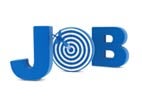Tech firms and large firms with substantial IT departments have long tried to attract the best technical talent by offering special perks. Companies like Apple and Google are normally cited as among the best examples of how these perks can be carefully planned and executed. And building on the one-size-fits-most strategy, other companies with less brand-name recognition, and perhaps smaller salary budgets, now commonly come up with their own lists of attractive, more personalized ideas.
The more we learn about the intention behind some common workplace perks, though, and what creative companies will do to attract and retain the best IT talent, the easier it will be to compare options and negotiate for perks that best enhance your work-life balance and satisfaction.
Google is famous for offering daily free breakfast, lunch, dinner and snacks on campus. This perk is a classic hook for keeping employees at work longer. But it goes deeper: Google’s behavioral scientists design the cafeteria areas specifically so that people will be forced to stand in waiting lines and be seated in close proximity. The goal is to encourage chatting, which could lead to ideas for improved or new products. Game rooms and on-site laundry services also make staying at work longer more feasible. If your goal is to spend more time at work, these perks may be at the top of your wish list.
Most people, I reckon, would not list longer work hours as a priority, though.
Application development company Urban Airship has carefully considered a number of company perks and settled on a progressive company culture that includes a no-policy vacation policy, according to Oregonlive.com. Employees are free to take the time they need, when they need it. One satisfied employee says in the article that this and other perks make it feel like he is working for his own company.
Hudl, a video analysis software firm in Lincoln, Nebraska, also offers “unlimited vacation to appeal to IT workers.” The company wants to hire 40 technical employees in the next year.
Those being considered for a tech position aren’t the only ones who can negotiate and maximize the perks that work best for them. Current employees may be offered more perks in addition to raises, or even in lieu of them, in some cases, according to findings from Glassdoor’s 2013 Employment Confidence Survey. Seventy-six percent of the survey’s respondents said they had been offered new perks in the past six months.
Glassdoor’s Rusty Rueff’s advice: Set your own goals and prioritize them.
If your company or prospective employer doesn’t volunteer the perks you most desire, open a conversation that includes the benefits for employer and employee and begin negotiating for perks (for yourself or for other colleagues, as well, as the situation fits).



